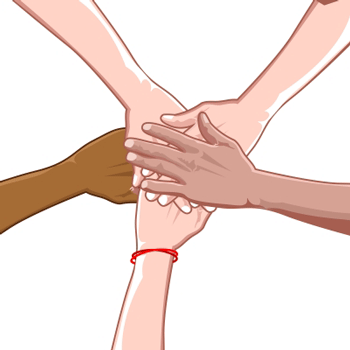Christians and church leaders can ignore, or treat as less important, talks, trainings or discourses on building a multicultural church. This resentment often comes from the fact that people think that talks about multicultural churches are trying to be politically correct. The question I am asking here is, is the agenda to build a multicultural congregation a politically correct issue?

Personally, I think do not think it is. In fact the vision of a multicultural church is very essential to the Gospel; in essence it is a Gospel imperative. Creation itself witnesses to the fact God loves and intentionally created diversity. The promise to Abraham that all nations will be blessed through him reveals that God’s plan in salvation history was to draw to himself people from every nation (Genesis 12: 1-3).
Paul expounded on this theme both in the letter to the Galatians and Ephesians. In Galatians he confirmed the Gentiles by affirming that God’s promise to Abraham was not only meant for the Jews but also for the Gentiles. One implication is that we are all one in Christ whether we are Jews or Greeks, slave or free, male or female, for we are all one in Christ Jesus (Galatians 3:28). Paul seemed to be saying that in Christ, culture, class and gender should not divide us.
He pressed this message home in Ephesians 2:11-22, when he talked about how Christ’s work on the cross reconciled us back to God (horizontal relationship with God), but that in addition, he pulled down the wall that divides us as humans (vertical relationships with our neighbours).
In the time of Paul and the other Apostles this wall would have been the various separations in Herod’s temple. There is the Holy place only for the High Priest; the court of the priest for the other priests; the court of Israel only for the Israelite men; the court of women for Israelite women and finally, the court of the Gentiles for everyone who is not a Jew.
These various separations were taken seriously so that if a Gentile dare enter the court of Israel it would have been at the loss of his or her life. To illustrate this, when Paul was arrested, one of the accusations against him was that he brought Greeks into the temple area (see Acts 21:27-29). Paul’s theology of unity in diversity saw Christ’s death on the cross putting an end to these artificial segregations therefore uniting us together in Himself. He went further, to say that this is why he has been chosen by God to be an apostle to the Gentiles (Ephesians 3:1-7).
God demonstrated time and time again that His Gospel brings an end to whatever divides us. In Acts of the Apostles this was done through the birth of the church on the day of Pentecost which brought Jews in Palestine as well as Jews in the Diaspora together. It was the cultural diversity of the church in Jerusalem that led to one of the earliest tensions in the church that emerged in Acts 6:1-7. The Holy Spirit also caused the disciples to scatter into Judea and Samaria therefore bringing the Gospel to the Samaritans, whom Jews will not accept as equals (Acts 8).
As if that was not enough, God had to convert Peter through a vision in order for him to accept and relate with Cornelius (a Gentile) and his household in Acts 10. All this scripture demonstrates that God, the creator of diversity, embraces cultural diversity in a way that it should bring us together rather than separate us. The implication is that whatever divides us today - race, culture, ethnicity, class, gender, and age - should make us one new body when we are in Christ, because it is in Christ that our identity is fully complete.
A multicultural church is a space where this diversity can be lived out in togetherness. Politcally correct? Multicultural churches are signs of God’s kingdom on earth!
The Revd Israel Olofinjana is an ordained and accredited Baptist minister and pastored Crofton Park Baptist Church before becoming the Team Leader at Catford Community Church in September 2011.
He is Nigerian coming from a Pentecostal background. He holds a BA (Hons) in Religious Studies from the University of Ibadan, Nigeria and MTh from Carolina University of Theology (CUT).
He blogs and is the author of Turning the Tables on Mission
Related: The work of a Baptist minister is set to deepen understanding of missionaries from the Global South - or 'reverse missionaries' - in the United Kingdom
Picture: digitalart/FreeDigitalPhotos.net